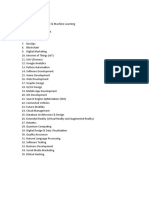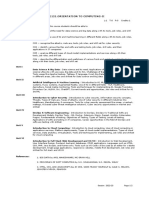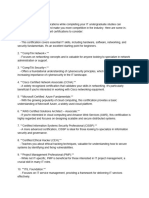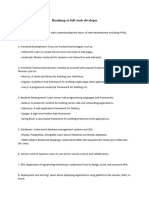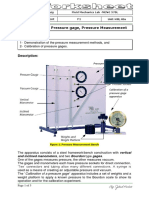0% found this document useful (0 votes)
9 views12 pagesSkill Set
The document outlines ten essential skill sets for students to prepare for the future, including Artificial Intelligence, Data Science, Cybersecurity, and more. Each skill set is accompanied by reasons for its importance, key areas or tools to learn, and relevant certifications or resources. Emphasizing a blend of technical and soft skills, the document aims to equip individuals for emerging trends and opportunities.
Uploaded by
htkushalhsn10Copyright
© © All Rights Reserved
We take content rights seriously. If you suspect this is your content, claim it here.
Available Formats
Download as DOCX, PDF, TXT or read online on Scribd
0% found this document useful (0 votes)
9 views12 pagesSkill Set
The document outlines ten essential skill sets for students to prepare for the future, including Artificial Intelligence, Data Science, Cybersecurity, and more. Each skill set is accompanied by reasons for its importance, key areas or tools to learn, and relevant certifications or resources. Emphasizing a blend of technical and soft skills, the document aims to equip individuals for emerging trends and opportunities.
Uploaded by
htkushalhsn10Copyright
© © All Rights Reserved
We take content rights seriously. If you suspect this is your content, claim it here.
Available Formats
Download as DOCX, PDF, TXT or read online on Scribd
/ 12









